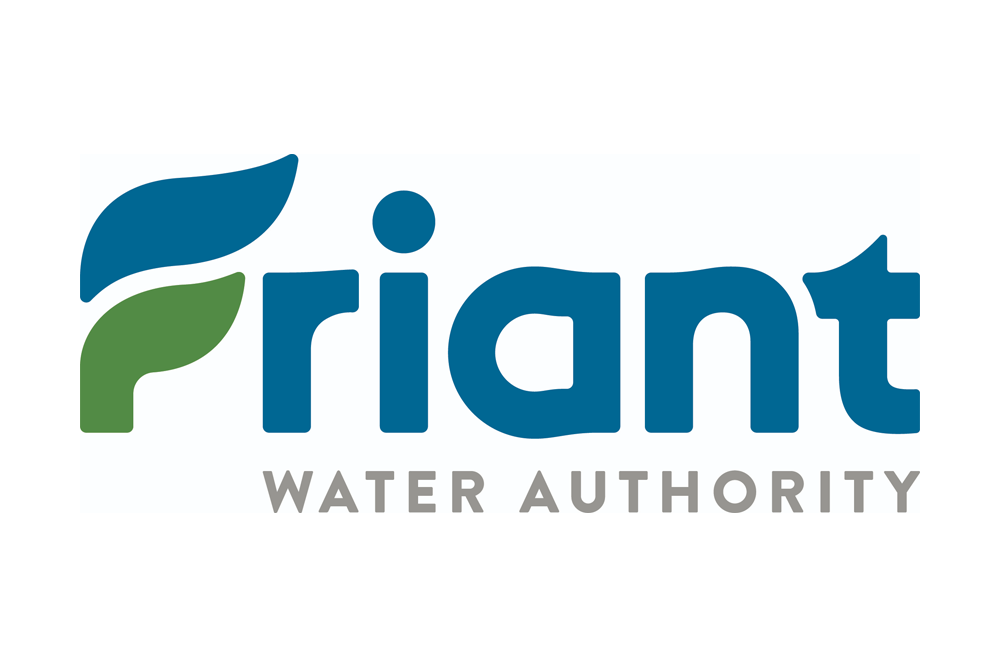 The Tulare Irrigation District held its board of directors meeting on Tuesday, June 9, 2020 remotely*. Fortunately for the board and staff I couldn’t be heard through the Cisco Webex computer connection and as a bonus they couldn’t see me either. But while the call-in worked it caused a latency delay echo. So I’ll be a passive observer. Each district has its own institutional/corporate culture. TID’s is more relaxed than many others. That’s not to say they are lax, they cooperate well and seem to genuinely like each other. Chairman Dave Bixler called the meeting to order at 9:00am and the minutes were approved.
The Tulare Irrigation District held its board of directors meeting on Tuesday, June 9, 2020 remotely*. Fortunately for the board and staff I couldn’t be heard through the Cisco Webex computer connection and as a bonus they couldn’t see me either. But while the call-in worked it caused a latency delay echo. So I’ll be a passive observer. Each district has its own institutional/corporate culture. TID’s is more relaxed than many others. That’s not to say they are lax, they cooperate well and seem to genuinely like each other. Chairman Dave Bixler called the meeting to order at 9:00am and the minutes were approved.
Water Report
TID Water Master Marco Crenshaw gave his report saying TID will get 18,000 a/f of Central Valley Project CVP water from the Friant Kern Canal FKC. But after transfers and exchanges they’ll net 8,500 a/f, however the Kaweah River supplies will bump things up to more than 30,000 a/f. That is most likely the good number for this year’s estimate. The question before the board was when to start deliveries. General Manager Aaron Fukuda said he recommends starting the 22nd of June which will prime the system for the really hot weather. This will help conserve the existing surface supplies through the hottest portion of the year and save some pumping and help the stressed crops. There isn’t going to be a lot of surface water this year. TID’s share may average to less than half an acre foot per acre.
It sounded like Director Dave Martin was concerned about the district’s revenue stream this year being low but to fix the short fall with water rates would be unfeasible this late in the year. Director Scott Rogers asked the amounts to be charged and Fukuda said it could be from $45 to $55 per a/f. Fukuda said the difference is small to the district because supplies are low. He said if he knew last year what the supplies would be he could have recommended raising the rates. I put forth if Fukuda knew what the precipitation would be a year in advance he’d probably be in charge of a lot more than TID. Director Rick Borges said there has already been some relatively big jumps in cost but TID’s rates are still low compared to many other districts. The board settled on $52 per acre foot.
Crenshaw said Riverdale Ranch ended up with a $19 interest on a delinquent payment due to its COVID-19 interruption. This isn’t an assessment delinquency, but a water rates problem. Fukuda said TID growers have been great in keeping up with bills during this virus. There isn’t a procedure in place for this and it would have been much more to have an attorney research and give advice than the matter than to write it off. The board said to tell them they’re a farm, an industry that has to keep going virus or not and paying Netflix may not be a priority after all and to collect the $19.
Maintenance
There was a photo posted of a junk dump also known as a homeless encampment on the main canal. The City of Tulare was very helpful in cleaning up the trash. This is something happening throughout the Valley with canals in urban areas. Actually in some rural areas as well. Attorneys are being consulted about what ordinance could be put in place to keep folks off the canals.
Superintendent Wayne Fox reported spraying has been going on but a couple of workers had to take time off for isolation but are back to work now. He listed a dozen or so repair and refurbishing projects throughout the district. I believe TID covers about 65,000 acres so that’s enough land to keep busy. Fox said in addition to workers being out there were windy days in May that prevented spraying the canals for weeds because of the danger of hitting trees and other plants with drift. But the district is well staffed for the water run.
Financial
Kathy Artis gave the all things financial report. Her report was approved. The only different thing was the need to get new signatures for the Mid Kaweah GSA’s bank accounts now that GM Paul Hendrix has retired. Artis expects to get this resolved at the next MKGSA meeting. TID is a big part of MKGSA. The cost of a battery for the district’s heart defibrillator is $300. Fukuda said the district opted to subscribe to a batter replacement service and is going save $1,100 over a few years’ time span. The board authorized paying its bills. One of the most interesting parts of the financial reports is management explaining certain purchases.
Engineering
The engineering report was next and Jeremy Barroll gave his report saying the fencing around a recharge basin has been completed and efficiency upgrades will be included in the next grant application. Bixler asked if he could have found a brighter yellow to paint one of the structures. Evidently it really pops. Fukuda said Fox was the one who picked out the paint. One of the basins is moving dirt and the district is selling dirt from $10 to $20 a truck load. The quality of the dirt varies and interestingly the location plays into the costs. It’s like water, cheaper if it stays in the district.
GM Report
Fukuda gave his management report saying the office staff has been allowed to return but on an enhanced social distancing, enhanced sanitizing and mandatory masks for any situation where they have to work in close proximity. The office is still closed to the public but next month’s meeting is being planned to allow the board to meeting in the board room but the public will still be on WebEx. He and his staff are working on a long-term COVID response.
SGMA
Next Fukuda reported on SGMA in the Kaweah Sub Basin. The firm GEI is developing a shared data base for all three GSAs in the sub basin. Provost & Pritchard has been  collecting data for the water budget and annual plan. All three Kaweah GSAs have signed a letter sent to the El Rico GSA, a GSA to the west representing Boswell farmlands urging coordination of GSPs. There is a Prop 68 Grant in play with a well metering study to be conducted by Fresno State University. Fukuda said the El Rico letter was well received and El Rico didn’t comment on MKGSA’s GSP.
collecting data for the water budget and annual plan. All three Kaweah GSAs have signed a letter sent to the El Rico GSA, a GSA to the west representing Boswell farmlands urging coordination of GSPs. There is a Prop 68 Grant in play with a well metering study to be conducted by Fresno State University. Fukuda said the El Rico letter was well received and El Rico didn’t comment on MKGSA’s GSP.
However, others have commented. The Animal Legal Defense Fund amongst other NGOs have made comments. Kristen Dobin, former Leadership Counsel for Justice and Accountability now a UC Davis Grad Student has reviewed the MKGSA GSP. The time limit for GSAs to respond to comments has been moved out a couple of months. I understand the Animal Legal Defense Fund is an anti-dairy organization and that might be an interesting comment to read – confined animal facilities is way out of the SGMA core business.
Fukuda reported MKGSA has approved a master services agreement with Montgomery & Associates to provide a work plan to implement the GSP. M&A will get the data from GEI and put it in motion, so to speak. He said he is working with Stantec to provide public relations and outreach services. And engineering services will be with P&P. Fukuda said these chooses are being made as he is the interim manager and will not lock down the permanent manager. Same with the proposed budget. There are three members of MKGSA: TID and the Cities of Tulare and Visalia. All three entities have agreed to continue a 1/3 cost sharing administrative costs or is expected to continue to do so. There will be projects coming up that benefit one entity over the others and that will be dealt with on an individual basis. Director Martin represents TID on the MKGSA board and said he thinks this arrangement is the best.
Friant Matters
Friant was the next topic of discussion. The FKC has a problem with subsidence limiting its capacity below about the Tulare Kern County line. Fukuda reported there was a public hearing last night on repair plans. He said one comment dealt with the funding and that is a big question. The EIR is up for comment. So far there is about 10 percent of the needed funds identified. So, the Friant Water Authority came up with three Zones. Zone One is  leave it alone. Zone Two will include funding from FWA, the public, GSAs and conveyance charge funding to repair the canal from future subsidence. However, the public would have to go through a Friant member to participate. If someone wanted to invest in the repairs they’d have to pay a district that would then pay FWA. The Zone Three plan is for Friant members to pay extra for more capacity. I’m not sure I have this exactly correct. Director Borges said he doesn’t see much incentive for TID to participate in Zone Three. Fukuda said the only scenario benefiting TID to participate in Zone Three would be to move CVP Class II water to Kern County for banking. Borges said if TID does want to move water and there is capacity there will be a wheeling fee to offset some of the Zone Three repair costs. Fukuda said the Friant management and staff have been very diligent in keeping this project on the rails.
leave it alone. Zone Two will include funding from FWA, the public, GSAs and conveyance charge funding to repair the canal from future subsidence. However, the public would have to go through a Friant member to participate. If someone wanted to invest in the repairs they’d have to pay a district that would then pay FWA. The Zone Three plan is for Friant members to pay extra for more capacity. I’m not sure I have this exactly correct. Director Borges said he doesn’t see much incentive for TID to participate in Zone Three. Fukuda said the only scenario benefiting TID to participate in Zone Three would be to move CVP Class II water to Kern County for banking. Borges said if TID does want to move water and there is capacity there will be a wheeling fee to offset some of the Zone Three repair costs. Fukuda said the Friant management and staff have been very diligent in keeping this project on the rails.
Legislation & Strategic Plan
Fukuda said there is a federal water infrastructure bill in the works. There is a company called the Capital Core Group out of Irvine proposing a due diligence effort for about $25,000 fee. CCG would find ways to bring federal money to projects of interest to TID. It’s a new strategy for many of the districts. The board gave Fukuda the go ahead, not to spend money but to continue working up a proposal.
TID has come up with a strategic plan and the board has received a draft for review. The goal is to adopt next month. There has been a trend to adopt strategic plans by districts and water organizations up and down the Valley. A good trend I think. Goals without timelines or plans are merely wishes.
Budget Review
Fukuda then presented the board with its 2020 budget review. He used comparisons between 2018, the adopted and the actual budget figures. Revenue is down by about six percent. The virus measurers caused an uptick in expenses. State Water Resources Control Board expenses are going up and off this increased cost three percent. Fukuda said Fox took the biggest one for the team. Some of the equipment replacements and purchases will not take place. He thanked staff for their hard work in getting this budget review together. Fukuda said the strategic plan could be financed by bonds. Bonds generate the cash and assessments pay them off. You may want to refer to the TID minutes for the details if that kind of things makes you happy.
Directors Reports
TID has elections coming up. It is cheaper and there is greater turnout to hold the district elections in conjunction with the normal two year cycle. This requires a resolution that passed. Three seats are up for elections this coming election.
TID is in the midst of purchasing a property with the People’s Ditch Company known as Seaborn. P&P has been identified as a good vendor to help with due diligence and surveying of the property. There is a time and material cost of about $20,000 so it will cost TID about $10,000. The board approved.
Directors reports were next and Borges started by saying the snow pillows need help and that will be provided over this summer. Martin said there is only 36,000 a/f of runoff left in the Kaweah watershed. Borges said the new water testing lab will be Moore Twining. The Fruit Growers Lab didn’t provide timely turnaround. Director Mike Thomas said the Wichumna assessment is $23. The meeting then went into closed session.
*Correctly identify the plant pictured and win my thanks. DAW
DISCLAIMER OF RESPONSIBILITY; Waterwrights strives to provide his clients with the  most complete, up-to-date, and accurate information available. Nevertheless, Waterwrights does not serve as a guarantor of the accuracy or completeness of the information provided, and specifically disclaims any and all responsibility for information that is not accurate, up-to-date, or complete. Waterwrights’ clients therefore rely on the accuracy, completeness and timeliness of information from Waterwrights entirely at their own risk. The opinions expressed in this report are those of the author and do not represent any advertisers or third parties.
most complete, up-to-date, and accurate information available. Nevertheless, Waterwrights does not serve as a guarantor of the accuracy or completeness of the information provided, and specifically disclaims any and all responsibility for information that is not accurate, up-to-date, or complete. Waterwrights’ clients therefore rely on the accuracy, completeness and timeliness of information from Waterwrights entirely at their own risk. The opinions expressed in this report are those of the author and do not represent any advertisers or third parties.
ALL RIGHTS RESERVED. Copyright 2020 by Don A. Wright
TULARE IRRIGATION DISTRICT
6826 Ave 240, Tulare, CA 93274 Office: 559/686-3425
Board: David G. Bixler- President, Richard S. Borges, Jr.-Vice President, Scott Rogers, Dave Martin & Michael Thomas
Staff: Aaron Fukuda-General Manager, Jeremy Barroll-Engineer, Kathi Artis–District Controller, Wayne Fox–Superintendent, Marco Crenshaw–District Watermaster & Alex Peltzer-Attorney.
About: The Tulare Irrigation District was organized September 21, 1889. The original proposal for the formation of an irrigation district covering 219,000 acres, extending from the Sierra Nevada foothills to Tulare Lake, was eventually reduced to 32,500 acres. The District continued in this status until January of 1948 when the so-called Kaweah Lands” (approximately 11,000 acres) were annexed. In October of 1948, approximately 31,000 acres, compromising the area served by the Packwood Canal Company were annexed to the District. A U.S. Bureau of Reclamation contract was signed in 1950 providing an annual supply of 30,000 acre-feet of Class 1 water, and up to 141,000 acre-feet of Class 2 water from the Friant-Kern Canal. The District and the Kaweah Delta Water Conservation District have coordinated efforts to enhance the recharge of groundwater within the Kaweah Basin. During high flow times KDWCD may use the recharge basins with the District for recharge purposes. Further, KDWCD has historically provided for a financial incentive program through which the District sustains the level of groundwater recharge from supply sources into the District. This historical program was recently reinstated by both districts in lieu of the District’s plans to concrete-line this canal to conserve the surface water. TID is a member of the Mid Kaweah GSA.


































